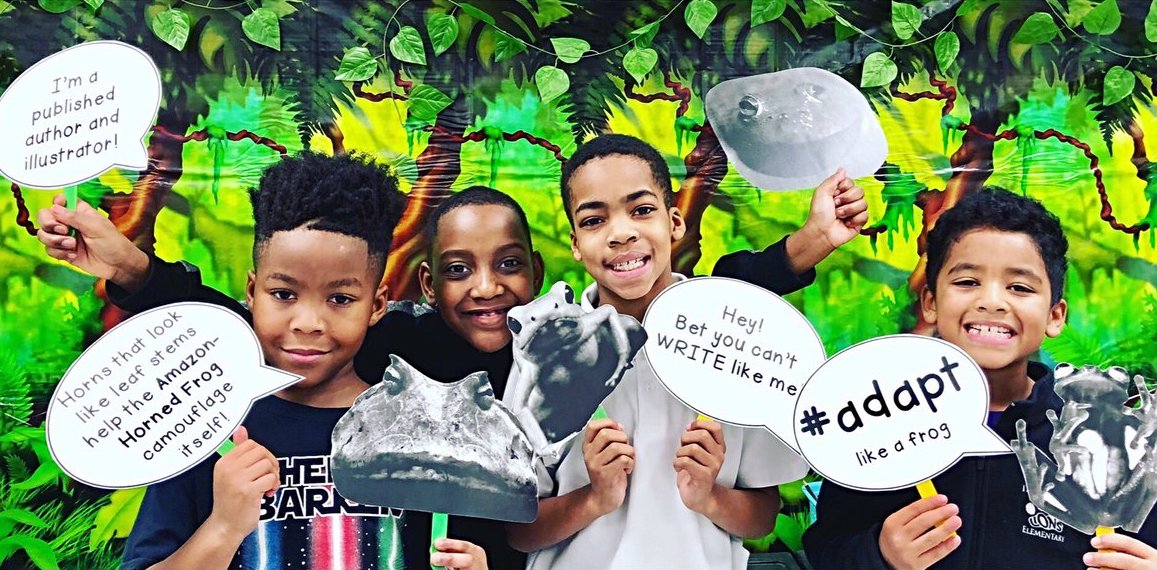This year, a national conversation about how we teach reading has led to numerous discussions about important research. Jared, Robin, and Brian wrote about it in an Education Week editorial, We Have a National Reading Crisis.
One of its “essential insights” is the role of content knowledge in reading success:
“Students’ background knowledge is essential to reading comprehension. Curricula should help students build content knowledge in history and science, in order to empower reading success.”
This topic deserves a lot more attention. Lately, the sharing in the Twitterverse suggests that it’s on everyone’s mind! When you read across the tweets, a powerful picture emerges.
First, The Why
Let’s start with the research. The excitement about students’ content knowledge only makes sense when you know why it matters. If this research is new to you:
Start by watching this 4-minute video that explains the famous Baseball Study. It’s the perfect primer – proven to generate ‘aha’ moments.
This blog goes a layer deeper, and our Resources page contains additional professional learning materials.
Curriculum = The How
When you get your head around this research, you pretty quickly realize two things:
- You need curriculum that builds content knowledge for students, especially students from less privileged backgrounds, whose early years may not have included travel and museum visits to foster exposure to academic subjects.
- It would be extremely challenging to build a knowledge-rich curriculum yourself. And it’d be unwise assume that teachers could easily do it themselves.
Fortunately, there are now multiple “knowledge-rich” English Language Arts curricula, which have been designed to build content knowledge during Tier 1 instruction. All of the curricula that earn “all-green” reviews on EdReports meet this criteria, and across our ‘squad,’ we have used four of them in our classrooms.
The Proof is in the Practice
The stories that we’ve been sharing provide an excellent window into HOW curriculum aligns practice with the research… and also how students respond.
Robin has been talking about her students’ responses to knowledge-rich curricula in Sullivan County, where they use the Core Knowledge (aka CKLA) curriculum:
Students are engaging with rich topics from kindergarten:
Jared has been talking about work with Core Knowledge in Jackson-Madison, too:
Starla Scott, a 3rd grade teacher in Jackson-Madison, has been writing about her work with EL Education’s Language Arts curriculum:
Her students recently finished a unit about frogs. Student writing shone there, too:
The science topics are intentionally and thoughtfully translated into student writing projects:
Kids are fascinated by these topics:
By design, they work collaboratively, so they’re building their social skills in the process:
The curriculum incorporates routines and protocols that get students talking about their learning:
There is excitement about the student work across Jackson-Madison school district:
We also see these stories coming out of districts using the ARC Core curriculum:
Engagement and joy are evident!
We see these stories coming out of districts using the Wit & Wisdom curriculum:
Engagement is a theme:
And these are far from the only stories! In fact, a recent School Tour visited classrooms using knowledge-rich curricula, and these firsthandclassroom accounts provide additional glimpses into this work.
It’s the student work, student voices, student outcomes, and visible student engagement that leave us convinced that we are doing the right work. Hopefully this window into our classrooms helps explain our passion – and lends tangibility to the work of bringing critical research into practice.
Photo credit: Starla Scott’s adorable Frog Festival Publishing Party photo graces the header of this blog. That picture is Joy of Knowledge Personified. Thank you to Starla for sharing her work with us each week!
